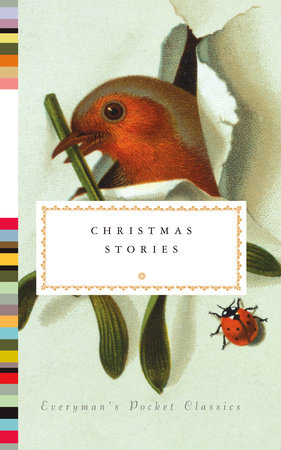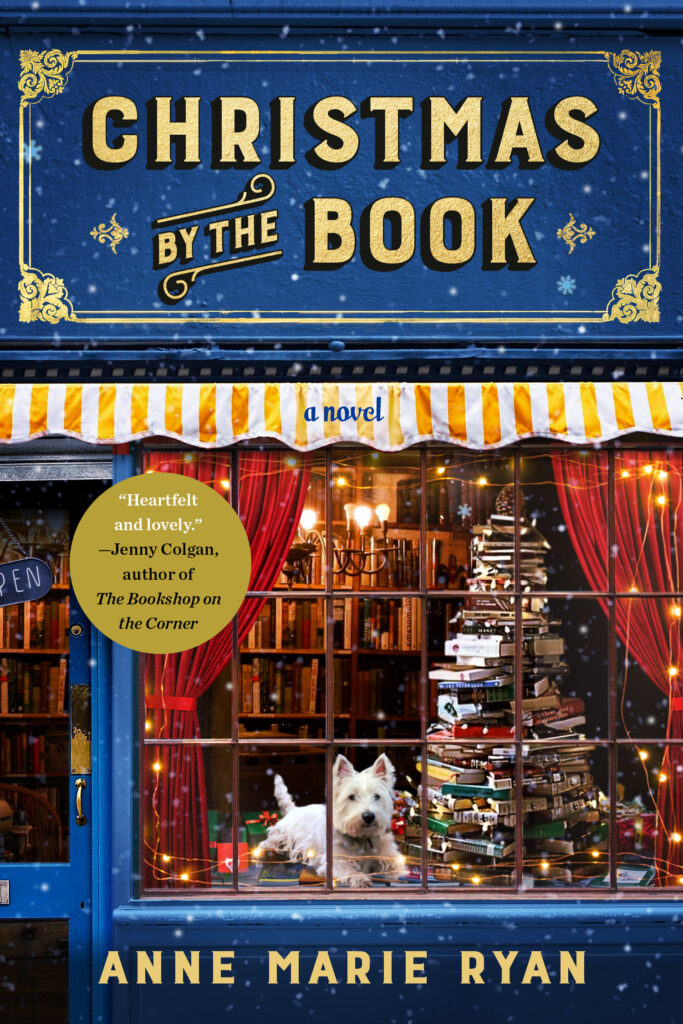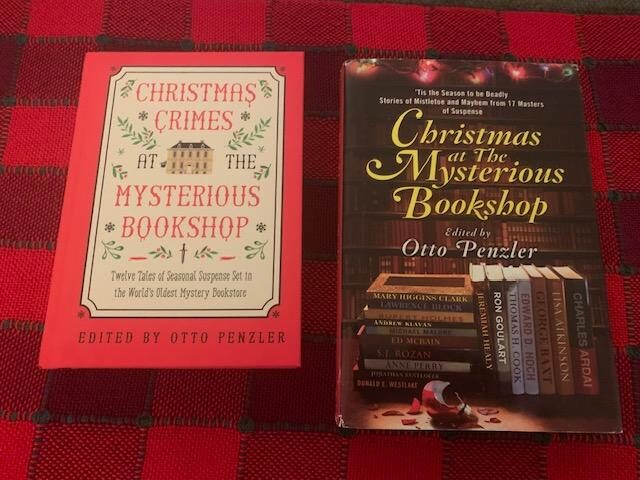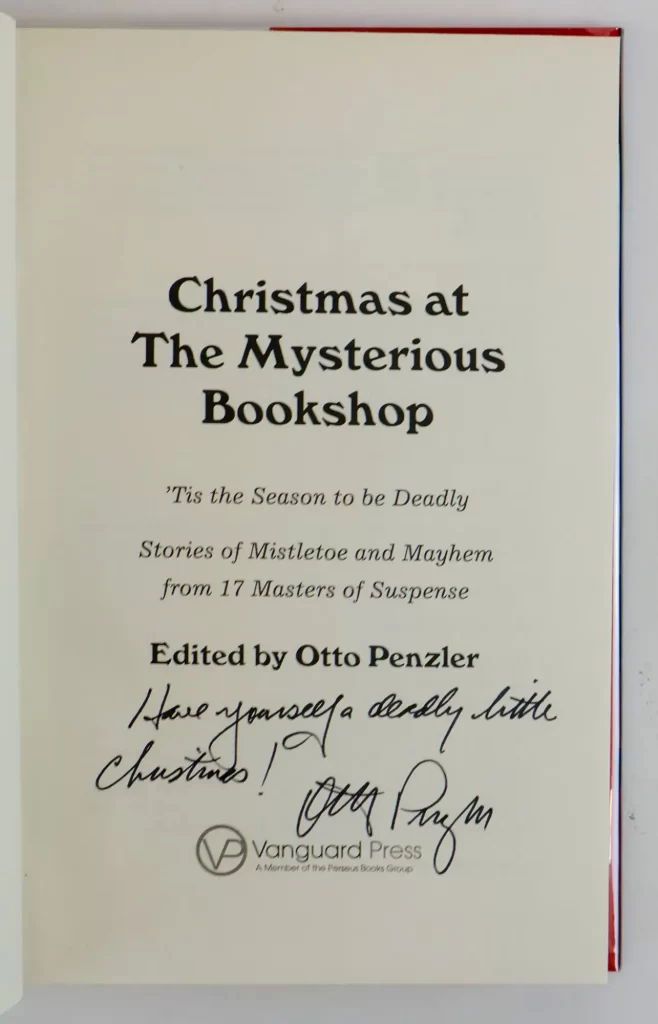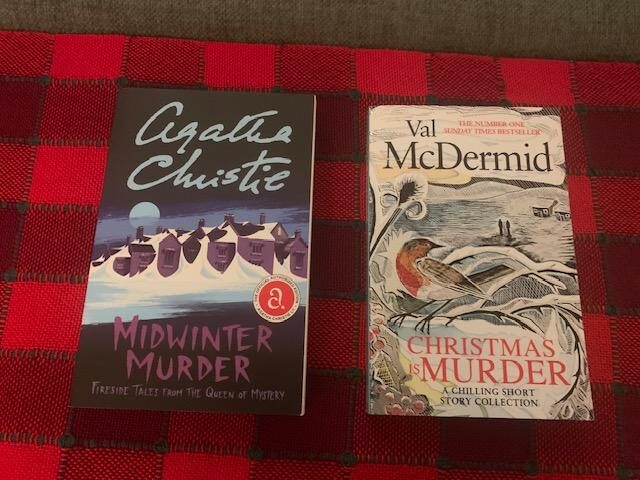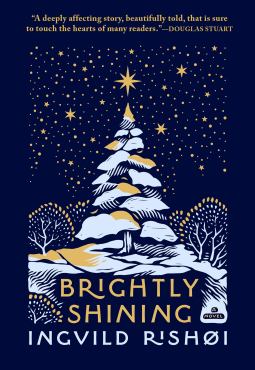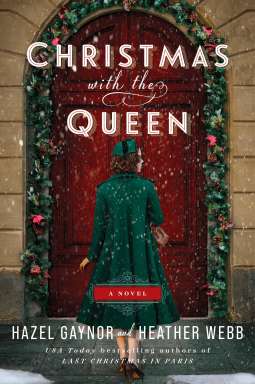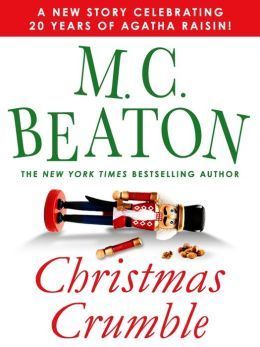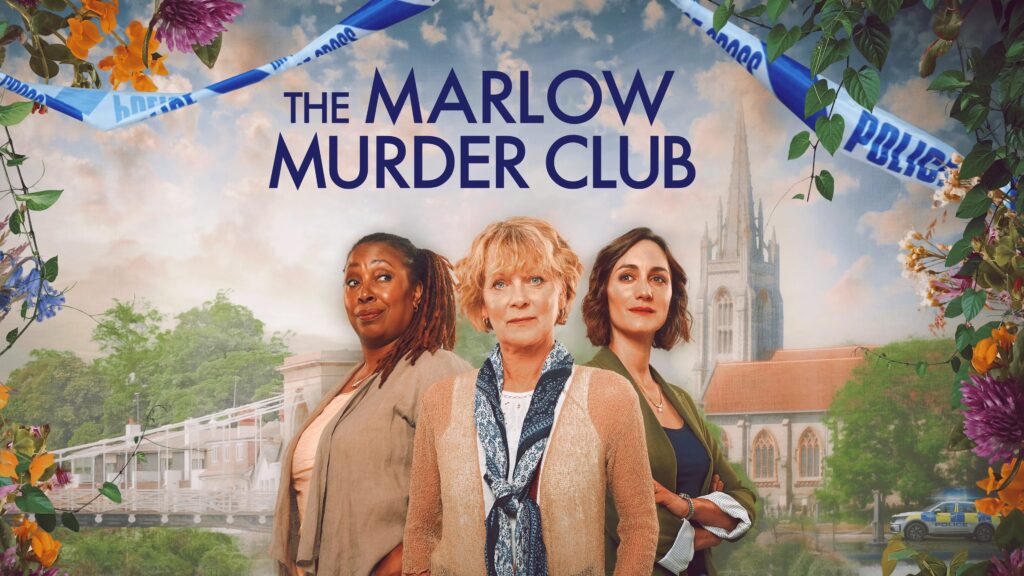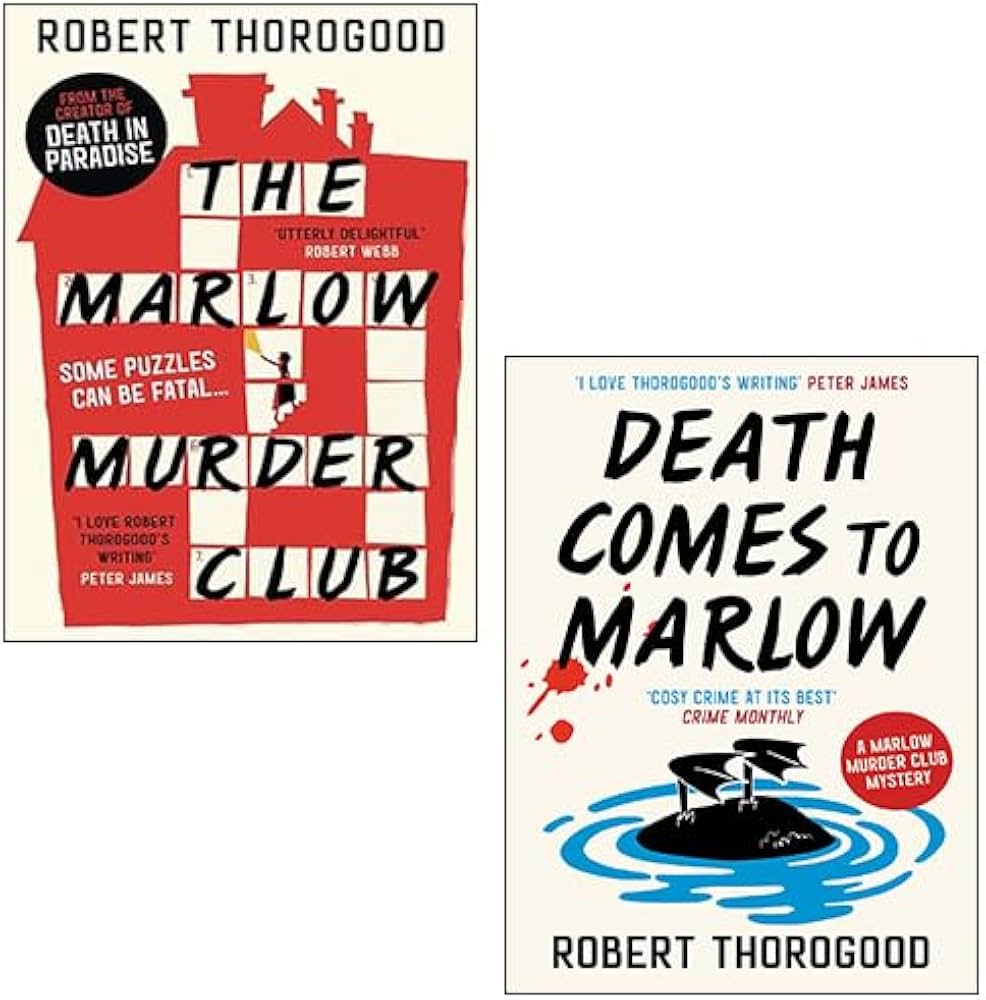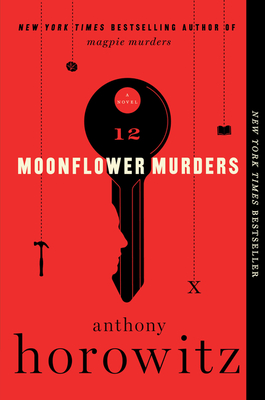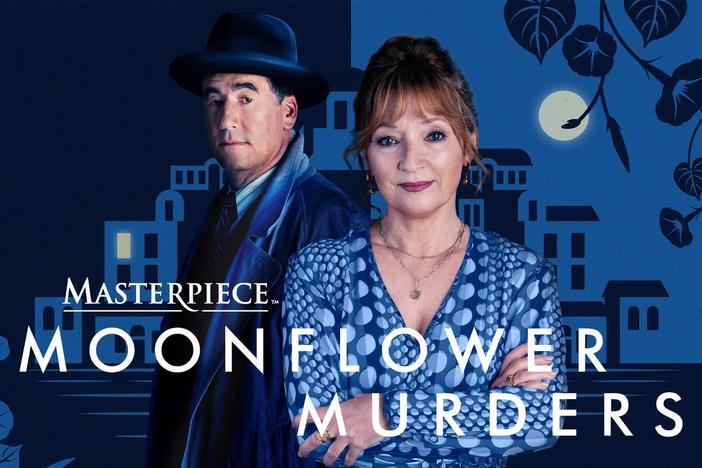More Light Reading
Happy New Year. The last couple of weeks have been busier than expected, between physical therapy, some lovely visits from friends, and (surprise) a water heater issue – bad timing – brrrrr.
I decided to continue and settle in with more light and easy reading. I saw THIS video from Ann Patchett talking about Truman Capote’s short story called A Christmas Memory. I realized I had never read it and found it in this lovely collection of Christmas Stories from my shelves.
“A Christmas Memory” and “The Thanksgiving Visitor” were inspired by Capote’s early years with a family of distant relatives in rural Alabama. These two childhood tales pay loving tribute to his eccentric old-maid cousin, Miss Sook Faulk, who became Capote’s best friend.
In A Christmas Memory, Miss Sook, Buddy (the narrator), and their dog, Queenie, celebrate the yuletide in a hilariously tipsy state as they have adventures gathering ingredients to make the annual fruit cakes they give away. And in between baking they fly kites they made together. Later, we learn that Buddy is shipped off the military school where he is homesick for his friend and their traditions he grew up with. It’s a sweet but sad story about two gentle souls who were best of friends and loved one another genuinely. Warning tears may occur.
I have no memory of where this book came from – I wouldn’t be at all surprised if I purchased it myself – given the pretty cover. I am a sucker for attractive Christmas books which become part of my holiday decorating
The Stowford Bookshop has been on High Street in Stowford a small village in the Cotswolds for over forty years. Nora grew up living above the thriving bookshop with her mother. Now, Nora and her husband Simon have inherited the shop, and they help their customers find books for themselves and as gifts…
Nora rang up the picture book, then reached down to hand it back to the little boy in the stroller, who hugged it to his chest. I love my job, she thought happily.
In reality, the bookshop is suffering from a leaky roof, competition from online book stores, and to top it all off, the unpaid taxes have tax enforcement officers at their door. Nora tries to uphold the ‘all is well’ facade in order to protect Simon who has had some heart issues — but for how long?
One rainy evening close to Christmas, an elderly gentleman enters the bookstore looking for a specific book for his grandson who is in the hospital. He has looked everywhere and the Stowford Bookshop is his last resort. He buys ‘The True Story of the Christmas Truce’ which was one of the very first books that Nora and Simon ordered for the store, has been on the shelf for over thirty years. Buoyed by the sale of the book, Simon and Nora decide to give away six books to anyone who needs an act of kindness. They soon discover that their small gifts multiply after the books are delivered.
I thoroughly enjoyed reading Christmas By The Book, which is reminiscent of ‘The Greatest Gift’, the heartwarming story that became the classic film, It’s a Wonderful Life. The story of the bookshop, the residents of Stowford, and its lovely Cotswold setting made for a delightful holiday read.
I’ve been a fan of Ina Garten’s for over 20 years and I own several of her cookbooks. (Note: every recipe I’ve tried has been great!)
Be Ready When the Luck Happens is her new memoir and I put it on hold at the library — which came through a couple of weeks before the holidays. Opened it up the other day and devoured it in one or two readings. This is a relaxing, low stakes book — perfect for my ‘light reading time’.
Her warmth and humor sparkle throughout. If you like Ina, as I do, you will enjoy the story of her leaving her White House job and buying a high end food specialty shop (called The Barefoot Contessa) in the Hamptons. We read of her long hours and back breaking work to make it a success. It also highlights how a woman building a business and the available financial options in the 70s/80s were very different than today.
I admired Ina’s determination, can-do attitude, and lack of fear throughout this memoir. She struggles with the decision to sell The Barefoot Contessa after many years of building its success, and then the obstacles that get in the way of her vision for the creation and publication of her first cookbook.
However, I had to suspend my brain from going on a ‘say what?’ reality check as she tells of her experiences. Ina comes off tone deaf as she never really acknowledges that she has had immense privilege, financial stability, and connections — which most of us mere mortals lack.
When moving from Washington DC, Ina and Jeffery just dumped all their belongings on the side of the street and restarted anew, (who does that?). They built their dream house in the Hamptons and furnished it utilizing expensive interior designers and furniture makers from around the world. She owns a convertible car on her therapist’s advice, and hosts expensive dinner parties with notable and famous people.
I did sigh with delight during the chapters describing Ina’s love of Paris and her search for the perfect apartment in just the right arrondissement — be damned the cost of flying first class back and forth to see multiple possibilities. To add to the over-the-top Frenchness – Ina buys copper cookware from Dehillerin, the famous Paris cookware shop, and orders a La Cornue stove – this is it in her Paris apartment. Oh dear, I’m just a bit jealous – but well beyond my budget.
I agree with another reviewer who said –but hey, no shade on Ina!
I admire her and really enjoyed reading about her life and no matter how privileged, she earned it with determination and most importantly, never letting anyone shame or guilt her onto another path.
With hard work and some lucky breaks, Ina was able to build a remarkable career and fulfilling life with Jeffrey by her side encouraging and supporting her every step of the way.
Now that I finished it, I’ve decided that Be Ready When the Luck Happens was an interesting, enjoyable read, and in the end, a good time. Plus, Ina includes some yummy recipes.
Happy New Year to all my bookish friends out there.
Stay warm, stay safe, and enjoy every moment.
Christmas Reading
Here we are, gifts wrapped, cookies made, baked goods delivered and now it’s time to kick back and read. It’s also time to share some of the books I’ve selected and stacked up to read this next week.
Is it possible to fall in love with a bookstore? Well, I certainty did – I fell hard for the Mysterious Bookshop in New York City – claims to be the oldest mystery specialty bookstore in the world. Just look – sigh…
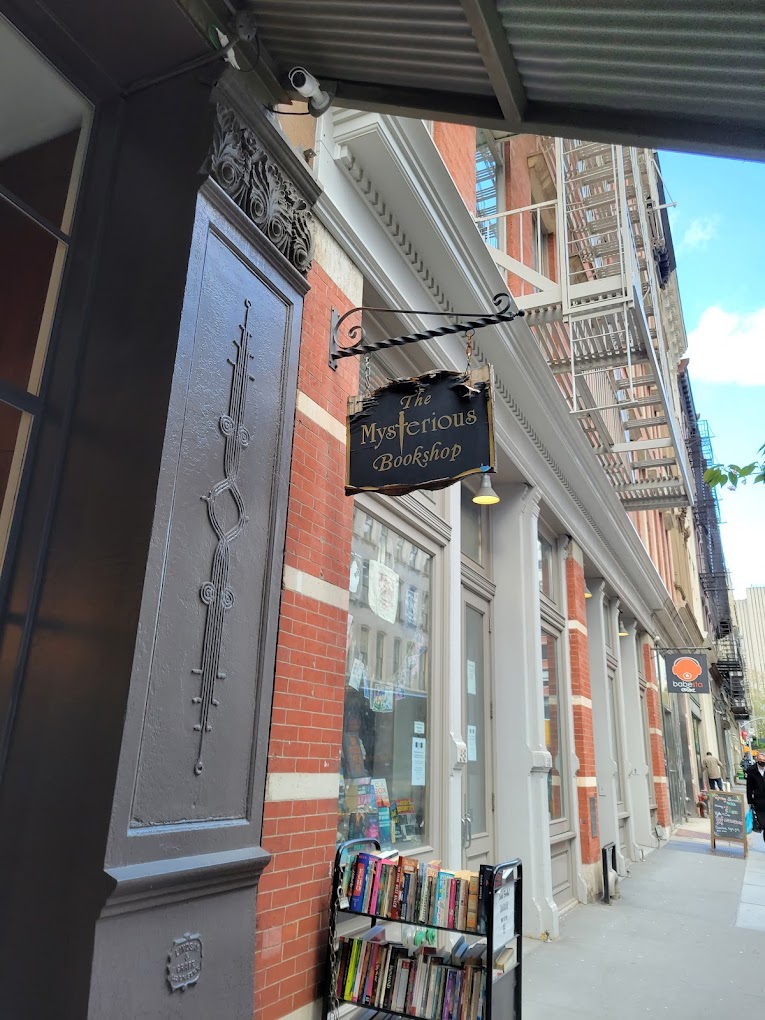

A few weeks ago, (perhaps, again, under the influence) I ordered the bookshop’s exclusive and newest Christmas crimes collection directly from the store and signed by the owner. The little volume arrived the other day (below left) and I am not disappointed. Then I had to dig out my older collection from 2011 (out of print, but found in a used bookstore out here)
Both books contain a collection of crime stories gathered from a wonderful tradition at the Mysterious Bookshop. For most of its forty-five-year history Otto Penzler, the owner, has commissioned an original short story as a holiday gift for its customers. These tales are written exclusively for the store, never published elsewhere, and were given as a holiday booklet to its customers as a thank you for their business — handed out or mailed between Thanksgiving and New Year’s Day. These booklets are rare and hard to find – click to make bigger.
Mr. Penzler’s requirements for these stories were based on three elements: that it be set at Christmastime, that it involve a crime of some kind, or the suspicion of one, and that it be set at least partially in the Mysterious Bookshop.
Many famous authors happily complied, including such notables as Jeffery Deaver, Laura Lippman, Lawrence Block, Ed McBain, and Donald E. Westlake – just to name a few.
I’ve already dipped in, and tales are as diverse as the authors. Perfect cozy crime reads for the holiday season.
And while I’m in a Christmas crime mood, here are two more I put on my stack to read this year. Both dug out from my stash of Christmas books — you see, I can’t get rid of them as the covers are so fun – wish you could see the sparkly cover on the Val McDermid book.
Again, short stories of crime set at Christmas – with a cup of tea or cocoa – well I’m all set…
Wishing you a cozy, warm and peaceful holiday week, filled with loved ones and some good books.
Hugs and happy reading ~~ Book Barmy
Reading Under the Influence
My recovery from knee replacement is going well, but for the first two weeks I was on pain drugs – which I found made some reading a challenge. I was close to the end of the latest Louis Penny novel, but the complex plot and clues became a jumble – as I say – under the influence.
Putting it aside for now, I read three very effortless Christmas books.
Perhaps you too, while not on drugs, are a bit scattered this time of year and want something easy to read right before bed ~~ try these, I enjoyed them all.
~~~~~~~~~~~~~~~~~~~~~~~~~~~~~~~~~~~~~~~~~~~~
Brightly Shining by Ingvild Rishoi
Brightly Shining is a Norwegian Christmas tale that has been critically acclaimed across Europe. I was drawn in by the sparkly cover.
This story is reminiscent of the fairy tale, ‘The Little Match Girl’ – so fair warning – not a happy Christmas story. Take two young girls, an alcoholic father, and all of them barely surviving on a cold Norwegian Christmas.
The little girls’ father gets a job selling Christmas trees, but it’s not long before he falls back into poor choices. The girls survive by helping out at the Christmas tree kiosk and make enough money to buy food and fuel. They survive on their dreams. Dreams of warm cabins, food, better times, and hope. But it’s hard to keep dreams alive when they, too, lose their gigs selling trees and the father is no where to be found.
While certainly sad, I found Brightly Shining compelling – the magic of dreams, the beautiful writing (it doesn’t read like a translation), and the girls endurance kept me turning the pages. In the end, no one saves the day which is very Norwegian realistic — and I will let you decide what you think of the ending.
A digital review copy was kindly provided by Grove Atlantic via Netgalley.
Christmas with the Queen by Hazel Gaynor & Heather Webb
Ms. Gaynor/Webb’s previous Christmas book – Last Christmas in Paris was one of my favorite holiday reads so I was very (very) pleased when the publisher sent me her newest – Christmas with the Queen.
This delightful novel opens with the beginning of Queen Elizabeth’s reign and her trepidation over her first Christmas Day Speech from Sandringham.
The dual story line opens in London when BBC typist Olive Carter, her best friend Rosie, and another girl Andrea meet Jack Devereux, a Seabee cook trained by his Louisiana grandfather, and pilot Peter Hall. The newly bonded young friends meet weekly at a pub to share their lives, hopes and dreams, flirting and settling into their new jobs and lives.
Seven years later Olive, now a single mom, is a junior reporter with the BBC and is sent as a replacement for her ill and stogy boss to cover the new Queen’s Christmas day speech at Sandringham. Once there she re-encounters Jack, who has lost his wife Andrea in an accident and has been recruited to help out in the royal kitchen for the holidays. Old sparks reignite, but their lives go in separate ways.
Christmas with the Queen goes on to follow the young Queen’s early Christmas broadcasts and Jack and Olive’s involvement with the royal household from 1952-1957. Times were changing in those post war years and the newly crowned Queen Elizabeth was facing a changing world. There is a special highlight on her actual Christmas Day speeches, and while the events that lead Olive to become her personal speech advisor may strain credibility, the interaction between these two mothers of young children, doing their duties in previously male held posts was insightful and heartwarming.
Jack becomes more than a valuable helper cook for Sandringham at Christmas, he becomes a permanent chef at Buckingham Palace, and joins the royal family on the royal yacht Britannia during the Queen’s commonwealth tour. I found the descriptions of the operation of the various royal kitchens fascinating and Jack, being an open and friendly American, develops a good matured and chummy relationship with Prince Philip.
As with their previous Christmas book, these two authors’ writing style drew me in and I fell headfirst into the story. (Again under the influence). It didn’t hurt that I’m a sucker for books about the royals. And, unlike the bleak Norwegian novel above – Christmas with the Queen has a heartwarming and magical ending — perfect for the holiday season.
A digital review copy was kindly provided by William Morrow via Netgalley.
Two minor quibbles: The authors obviously wanted to extend Jack and Olive’s romance over the years in the story line and so they loaded their relationship with miscommunications, set backs, and misunderstandings — which felt a little strained towards the end of the novel.
As I read, my teeth grated over the authors’ use of the grammatically incorrect ‘between Philip and I’ and ‘carefree days with Philip and I’. Arghh it should be between Philip and me and with Philip and me. Correct me if I’m wrong?
Christmas Crumble by M. C. Beaton
The more intellectual followers of this little blog, are most likely aghast at my fondness for the Agatha Raisin series, but there it is – I love these often silly, always funny mysteries.
Here’s what Goodreads said:
At home alone for the holidays, Agatha Raisin decides to host a dinner party for the elder residents in her Cotswold village . Agatha’s never been able to cook, but she’s dead-set on making this the perfect holiday for local “crumblies”. She’s decorated a tree while fending off her cats Hodge and Boswell, and even made a (lumpy) Christmas pudding in between swigs of rum.
When Agatha dumps the pudding on the head of the local self-proclaimed lothario—an eighty-five year old with a beer belly and fingers like sausages—his death by dessert proves more than a trifle as mysteries mount higher than the season’s snowfall. So much for trying to do good by her neighbors. Now Agatha needs no less than a Christmas miracle to get herself out of this one...
This little 36 page novel packs in a lot, and, as always, Agatha provides much merriment as she struggles to gain acceptance and love, fails miserably, but always pulls herself back up. And that, folks, is why I enjoy this character.
I’m now off the pain killers, just Tylenol – so I feel equipped to get back to Three Pines and the wonderful world of Louise Penny. But wait, look over there – more Christmas books to consider.
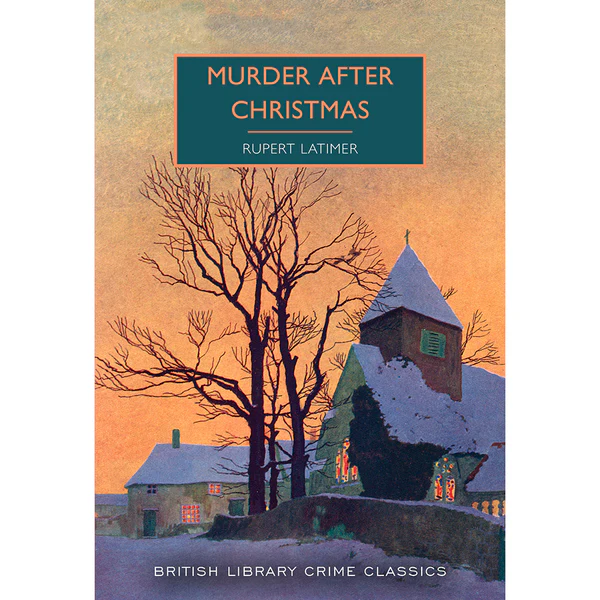

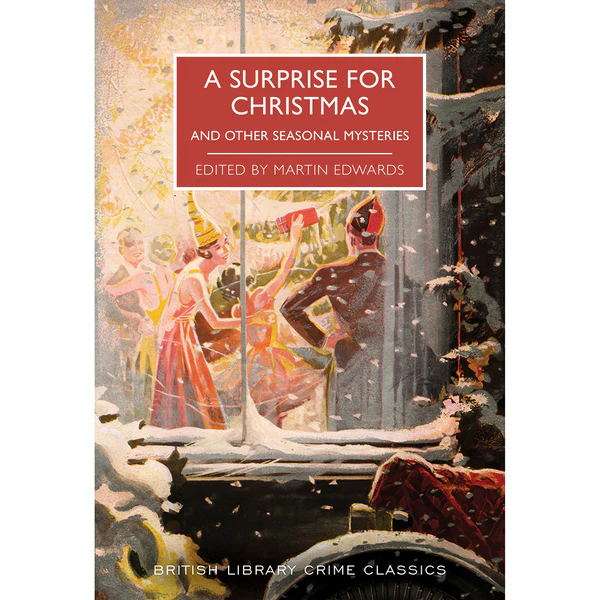
Tis’ the season after all…
Daily life is a bit different…
So, I have new knee! Yup, early last week I had a total knee replacement. I’d been putting it off for far too long. It was only during our recent trip, when I could hardly hobble over the cobblestones, and had to wait in a cafe while Husband went exploring. It was then I made my decision to finally have it done. We have too many trips in our future and all involve walking.
I’ve known about this surgery since September and have my moods have varied between angst, anticipation, worry, hope, dread and pure fright. You see, I’ve never had an operation before, let alone been in a hospital. (I know!)
In the end, It went really well. I was extremely well taken care of, all the nurses and doctors were kind, understanding, and comforting~~and as to the actual surgery – I remember nothing. And, I was home that same afternoon. So, all that pre-surgery worry and emotions was for nothing – a waste ~~ will I learn from this? Probably not.
I must admit the first three days were the worst, but here I am on Day 5 and every day is getting easier. To explain the title of this post — daily life has been reduced to exercises, walking around with walker, visits from the physical therapist, icing the knee, light meal, read, sleep – and repeat. Big shout out to Husband (and my favorite cabana boy) – coaching me with my exercises, preparing all the meals, fetching an afghan here, my book over there. He’s applied his Eagle Scout training to my care and rehab — to the point he sets his alarm to give me my meds exactly on schedule (at the sometimes ungodly 4am). He’s totally rocking the ‘for better or worse” vow. Getting choked up just writing about it – love that guy.
But enough of this about me – I want to talk about something else – not a book, per se, but another PBS Masterpiece series (bravo PBS!).
This series is based on the mystery novel of the same name written by Robert Thorogood . I’ve never read this book even though it has been on my to be read list. But,during the days leading up to the aforementioned surgery, I needed a good distraction so decided to watch it anyway.
The series is based in the village of Marlow* in (of course) England, and stars one of my favorite actresses, Samantha Bond who plays a former archaeologist Judith Potts. Judith unexpectedly comes across a murder in her very back yard when she overhears her neighbor being shot.
Initially, the police brush her off but when she successfully recovers the missing body, they launch a full police investigation, warning Judith to not get involved. Well, you know where this is going, Judith however immediately starts digging around , enlisting the help of dog-walker Suze, and the Vicar’s wife, Becks along the way.
Each of these women are keen to solve the murder and bring some excitement to their lives. Each has their own wonderful skills which they bring into the sleuthing. Suze being a dog walker, goes unnoticed as long as she has a dog at her side. Becks, the Vicar’s wife, is welcome into private homes and is privy to all sorts of tantalizing gossip and key clues.
This sleuthing trio soon uncovers another two dead bodies and realize that a serial killer is at large in Marlow. But what connects the three victims and how is it that the prime suspect in each instance always had the perfect alibi? With so much to figure out Judith, Suze, and Becks have their work cut out for them but if anyone can do it it’s the newly appointed Marlow Murder Club.
This is a extremely well done production (again bravo PBS) with beautiful local settings and lavish sets. I really enjoyed the multi-layered mystery, as our sleuthing trio tries to tackle a nearly impossible mystery. The story line develops across the four episodes — as one murder soon turns into three and we get to dive into the past, as well as the present to find out how it was pulled off.
A great watch from start to finish, the casting is just great, the writing sharp and fun. The Marlow Murder Club is an homage to the golden age crime era with a touch of modern spunk.
Here’s the trailer~~
And here’s a bonus story — on a business trip in the late 1990’s, I was fortunate to stay at the hotel featured in the PBS series ~~
It’s The Compleate Angler in Marlow – a magical hotel with all the amenities one could ever want. (For me it was tea and scones room delivery – sigh). The hotel is named after the1653 literary nature classic by Izaak Walton. I hated to leave – but of course, there were those pesky business meetings I had to attend. Someday I’ll go back and never leave – except to go on long walks along the river with my new knee!
Here’s the book and a sequel, if you’re interested – available at your local library, of course. I may stick to PBS as they are reportedly filming a second series based on the sequel.
Moonflower Murders by Anthony Horowitz
This is the second mystery in a series, the first was Magpie Murders.
And again, there is the book, and the PBS Masterpiece adaptation.
And once again, I found myself enjoying the PBS version more than the book.
I know, heresy. I make it a firm rule, to read the book before I watch any film or television adaptation. And in the past, I almost always prefer the book, but once again with this author — not in this case.
First the book:
I eagerly awaited Moonflower Murders despite being a hefty 608 pages. I very much enjoyed the cleverness and humor in Horowitz’s Magpie Murders.
Susan Ryeland, introduced in the first book, has returned to solve another mystery. She is now retired from publishing, living with her fiancée, Andreas, on a Greek Island, owning and managing a small hotel.
Being in a financial bind, Susan accepts an offer from the Treharnes to travel to London to analyze a murder mystery book, one written by her former client, Alan Conway. They hope it will provide clues about the recent disappearance of their adult daughter. They claim the idea for the book ‘Moonflower Murders’ had been modeled from a murder that occurred at their hotel eight years ago. The Trehearnes believe Susan’s knowledge of the book and her ties to the now deceased Alan will shed light on Cecily’s disappearance.
Susan just so happens to have edited the book that inspired by this murder (Alan Conway’s Atticus Pünd Takes the Case). The Trehearnes’ daughter, Cecily, disappeared after telling them that Alan’s novel holds the truth behind the 2008 murder.
Similar to Magpie Murders the novel is divided between Susan’s narrative and Alan’s novel. And just like before the book-within-a-book is peppered with obtuse anagrams, puzzles within puzzles, lots of clues, and many, many, characters to keep straight. I ended up spending so much time trying to connect the characters in the inner mystery to those in the outer that it I found it difficult to stay immersed in the story.
Full disclosure, I ended up not finishing the book, knowing that I had recorded the PBS series.
Now the PBS Masterpiece Series:
Just like with the television version of Magpie Murders, Moonflower Murders crosses back and forth in time allowing for a reprieve from the more classically-paced 1950’s mystery manuscript.
Atticus Pünd, the fictional detective from Alan Conway’s book in question, appears to her in the modern day mystery to advise and counsel Susan as she tries to solve Cecily’s disappearance.
And again, wonderfully, the same actors play dual characters in the manuscript and current day.The back and forth between fiction and reality is expertly done so much cleaner than the written book. I found the series so much less confusing and even liked the on screen characters better than in the book. (Leslie Manville is perfectly cast as Susan Ryeland.) As an added bonus, because I hadn’t finished the book – the ending was a complete surprise.
I eagerly watched, and fully enjoyed, every episode of the television series, and donated the book to my neighborhood little free library.
You can watch Moonflower Murders on PBS (on demand or stream HERE)
Here’s a taste
One final note, the book portrays the gay characters as predators and as perverts, not just in this book, but also in Magpie Murders. It’s predictable, offensive, and out of date. The PBS series avoids all of that.


